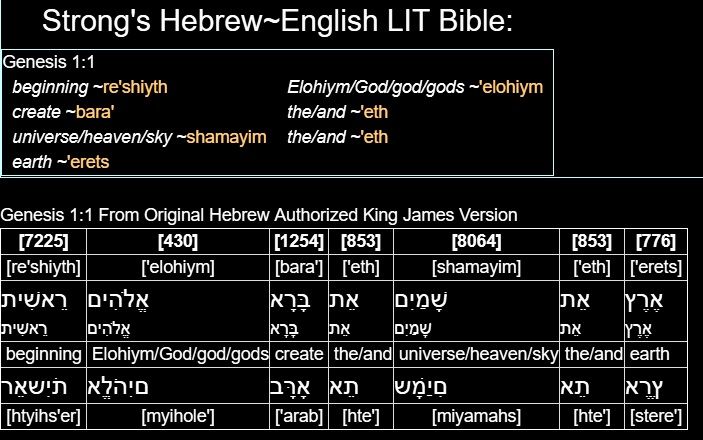| [3767] | [71] | [2424] | [575] | [2533] | [1519] | [4232] | [1161] | [2258] | [4405] | [2532] | [846] | [1525] | [3756] | [1519] | [4232] | [3363] | [3392] | [235] | [2443] | [5315] | [3957] |
|---|---|---|---|---|---|---|---|---|---|---|---|---|---|---|---|---|---|---|---|---|---|
| [oun] | [ago] | [Iesous] | [apo] | [Kaiaphas] | [eis] | [praitorion] | [de] | [en] | [proia] | [kai] | [autos] | [eiserchomai] | [ou] | [eis] | [praitorion] | [hina] | [miaino] | [alla] | [hina] | [phago] | [pascha] |
| οὖν | ἄγω | Ἰησοῦς | ἀπό | Καϊάφας | εἰς | πραιτώριον | δέ | ἦν | πρωΐα | καί | αὐτός | εἰσέρχομαι | οὐ | εἰς | πραιτώριον | ἵνα μή | μιαίνω | ἀλλά | ἵνα | φάγω | πάσχα |
| and (so, truly), but, now (then), so (.. | be, bring (forth), carry, (let) go, ke.. | Jesus | X here-)after, ago, at, because of, be.. | Caiaphas | abundantly, against, among, as, at, (b.. | common, judgment) hall (of judgment), .. | also, and, but, moreover, now | agree, be, X have (+ charge of), hold.. | early, morning | and, also, both, but, even, for, if, o.. | her, it(-self), one, the other, (mine).. | X arise, come (in, into), enter in(-to.. | long, nay, neither, never, no (X man).. | abundantly, against, among, as, at, (b.. | common, judgment) hall (of judgment), .. | albeit not, lest, that, no(-t, -thing | defile | and, but (even), howbeit, indeed, nay,.. | albeit, because, to the intent (that),.. | eat, meat | Easter, Passover |
| νὖο | ωγἄ | ςῦοσηἸ | όπἀ | ςαφάϊαΚ | ςἰε | νοιρώτιαρπ | έδ | νἦ | αΐωρπ | ίακ | ςότὐα | ιαμοχρέσἰε | ὐο | ςἰε | νοιρώτιαρπ | ήμ ανἵ | ωνίαιμ | άλλἀ | ανἵ | ωγάφ | αχσάπ |
| [nuo] | [oga] | [suoseI] | [opa] | [sahpaiaK] | [sie] | [noirotiarp] | [ed] | [ne] | [aiorp] | [iak] | [sotua] | [iamohcresie] | [uo] | [sie] | [noirotiarp] | [anih] | [oniaim] | [alla] | [anih] | [ogahp] | [ahcsap] |
John18:28 From Original Authorized King James VersionJohn 18:28 Then led they Jesus from Caiaphas unto the hall of judgment: and it was early; and they themselves went not into the judgment hall, lest they should be defiled; but that they might eat the passover.
John 18:28 Then led they Jesus from Caiaphas unto the hall of judgment: and it was early; and they themselves went not into the judgment hall, lest they should be defiled; but that they might eat the passover.
John18:28 Strong's Greek~English LIT Bible:
John 18:28
and (so, truly), but, now (then), so (.. ~oun
be, bring (forth), carry, (let) go, ke.. ~ago
Jesus ~Iesous
X here-)after, ago, at, because of, be.. ~apo
Caiaphas ~Kaiaphas
abundantly, against, among, as, at, (b.. ~eis
common, judgment) hall (of judgment), .. ~praitorion
also, and, but, moreover, now ~de
agree, be, X have (+ charge of), hold.. ~en
early, morning ~proia
and, also, both, but, even, for, if, o.. ~kai
her, it(-self), one, the other, (mine).. ~autos
X arise, come (in, into), enter in(-to.. ~eiserchomai
long, nay, neither, never, no (X man).. ~ou
abundantly, against, among, as, at, (b.. ~eis
common, judgment) hall (of judgment), .. ~praitorion
albeit not, lest, that, no(-t, -thing ~hina
defile ~miaino
and, but (even), howbeit, indeed, nay,.. ~alla
albeit, because, to the intent (that),.. ~hina
eat, meat ~phago
Easter, Passover ~pascha
Samekhi's Greek LTR-RTL Greek Hebrew Bible Project
John 18:28
Strong's Dictionary Number: [3767] |
Strong's Dictionary Number: [71] |
Strong's Dictionary Number: [2424] |
Strong's Dictionary Number: [575] |
Strong's Dictionary Number: [2533] |
Strong's Dictionary Number: [1519] |
Strong's Dictionary Number: [4232] |
Strong's Dictionary Number: [1161] |
Strong's Dictionary Number: [2258] |
Strong's Dictionary Number: [4405] |
Strong's Dictionary Number: [2532] |
Strong's Dictionary Number: [846] |
Strong's Dictionary Number: [1525] |
Strong's Dictionary Number: [3756] |
Strong's Dictionary Number: [1519] |
Strong's Dictionary Number: [4232] |
Strong's Dictionary Number: [3363] |
Strong's Dictionary Number: [3392] |
Strong's Dictionary Number: [235] |
Strong's Dictionary Number: [2443] |
Strong's Dictionary Number: [5315] |
Strong's Dictionary Number: [3957] |
Verses -> 1 2 3 4 5 6 7 8 9 10 11 12 13 14 15 16 17 18 19 20 21 22 23 24 25 26 27 28 29 30 31 32 33 34 35 36 37 38 39 40
The King James version of the Bible is Public Domain.


🌈Pride🌈 goeth before Destruction

When 🌈Pride🌈 cometh, then cometh Shame
Bible News
- The Greek Word Pharma in Revelation 18:23, Does it Refer to Big Pharma? - Thu, 07 Apr 2022 13:09:12
- If you are a country club church working out of a country club building who wants to have a Country Club Church Website... - Sat, 26 Feb 2022 20:45:41
- Gematria of the Egyptian Hieroglyphs - Fri, 25 Feb 2022 16:26:48
- Oldest Manuscript P47 shows Σ Sigma not Ξ Samekh for 60 in the 666 from Revelation 13:18 - Sun, 20 Feb 2022 09:30:56
- What does biblical “inerrancy” mean? | Richard Ostling - Patheos - Sun, 20 Feb 2022 09:29:08
- DC museum unveils rare 1,000-year-old Hebrew Bible - The Times of Israel - Fri, 18 Feb 2022 22:54:59
- Ancient Canaanite temple with statues of Baal found in southern Israel - Haaretz - Fri, 18 Feb 2022 22:53:28
- Inside the Lachish Temple, the Earliest Example of the Letter Samekh - The Daily Beast - Fri, 18 Feb 2022 22:44:02
- Israeli scholars discover corrections, erasures, revisions in oldest biblical manuscript - Haaretz - Fri, 18 Feb 2022 22:42:27
- Museum of the Bible returns hand-written gospels looted from Greece during the First World War - Art Newspaper - Fri, 18 Feb 2022 22:41:24
- Bible study: Ancient Jewish manuscript analysed using state-of-the-art cameras - Daily Mail - Fri, 18 Feb 2022 22:39:25
- Is a Long-Dismissed Forgery Actually the Oldest Known Biblical Manuscript? - The New York Times - Fri, 18 Feb 2022 22:32:39
- More Dead Sea Scrolls, second oldest Hebrew Bible manuscript, found after 60 years - ThePrint - Fri, 18 Feb 2022 22:30:23
- A Biblical Mystery and Reporting Odyssey: 1883 Fragments - The New York Times - Fri, 18 Feb 2022 22:24:46
- Lost Bible Fragment Recovered Among Dead Sea Scrolls | Lost Bible Fragment Recovered Among Dead Sea Scrolls - Patheos - Fri, 18 Feb 2022 22:14:35
- African Script Sheds Light on Evolution of Writing - DISCOVER Magazine - Fri, 18 Feb 2022 21:47:13
- Evidence of ‘biblical giants’ found in northern Israel - The Jerusalem Post - Fri, 18 Feb 2022 21:39:06
- Oldest precursor to letter S aka Samekhi was found in nine-letter Canaanite text unearthed in Israel - Fri, 18 Feb 2022 21:39:06
- In Tigray, Christianity May Be Erased - FSSPX.Actualités - FSSPX.News - Fri, 18 Feb 2022 14:12:41
- Rocket Science Confirms Biblical Creation - Answers In Genesis - Fri, 18 Feb 2022 13:28:44
.jpg)
Christian how we Support the Ministry
Industrial Electronic Repair
Industrial Monitor Repair
Power Supply Repair
ebay
Manufacture's Repaired
A B C D E F G H I J K L
M N O P Q R S T U V W X Y Z
Simple Rules for this Site!
Posted by Webmaster on Saturday, August 31 2002
- Web-Ministry is intended for the Glory of God.
- Please try to be respectful of God and to be reverent toward His Word, which is the Holy Bible.
- Some may not be Christian nor agree with Christian theology in general, but please be respectful of those that do and to Christendom in general.
- People from all walks of life and backgrounds of faith are welcome here, including the backslidden and nonbelievers, as well.
- We may not all agree... but we can agree to disagree, at least.
- However, any potential disagreements still need to remain civil in nature, and should stay as such.
- Please, just debate the points of your position, if necessary, and refrain from ad hominem attacks. Slandering and name calling serve no productive purpose.
- Posting rules are based upon decent conduct and generally acceptable chat behavior and, also, on Christian beliefs and morals found in the Holy Bible.
- Please refrain from using offensive language or obscenely suggestive innuendo.
- Usernames that are not becoming of basic common decency and morality are not to be used and may possibly result in membership cancellation.
- Refusing to follow forum rules may result in membership cancellation and possibly some or all applicable posts being deleted and if necessary... entire threads.
- If you feel these things to be unacceptable, please find another forum to post on.Thank you.
- dp,webmaster,Chrysoprasus,wilshine
Jesus Christ Forums
To the Glory of Jesus Christ!
Jesus Christ Forums Software Testing
Radio for Jesus 24/7
Hosted by $SamekhiAmI

Surplus by Samekhi
OR
Cash app $SamekhiAmI
Manufacture's Repaired
A B C D E F G H I J K L
M N O P Q R S T U V W X Y Z
Web-Ministry Created this page in 4.561985 seconds